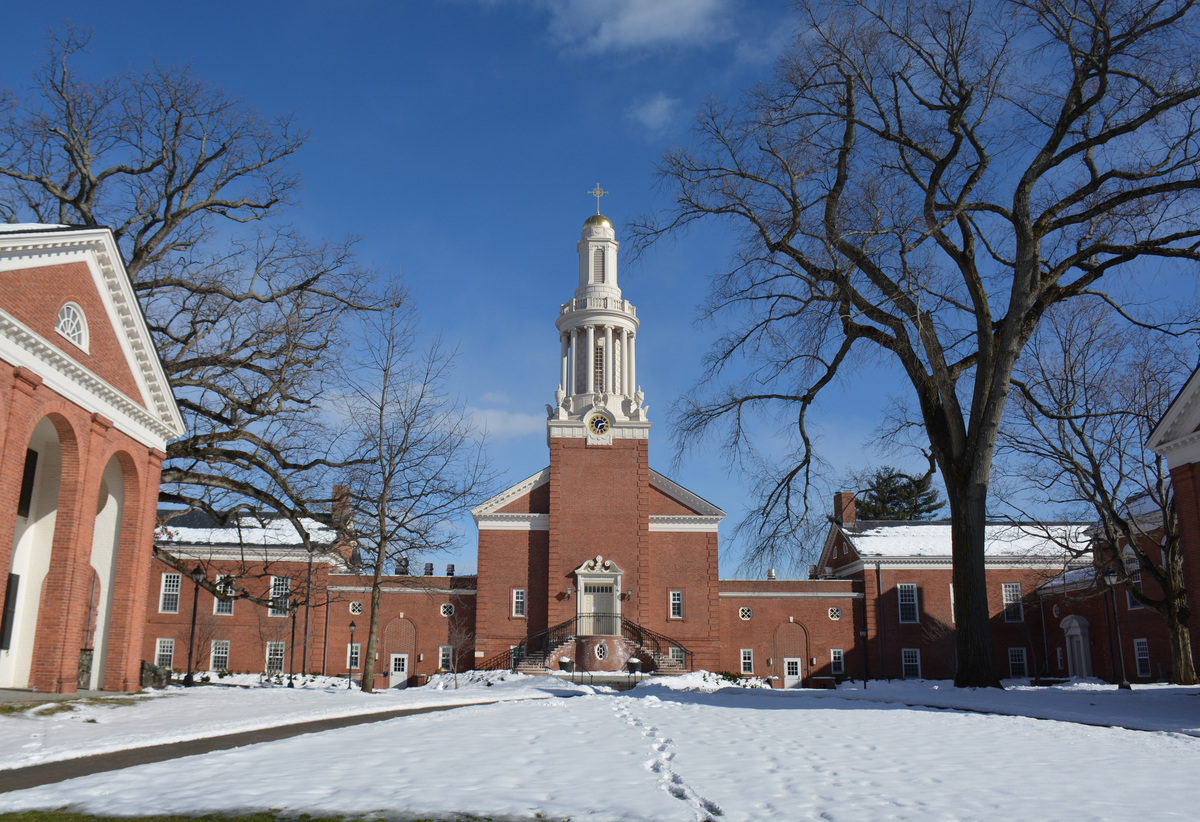Divinity School’s Center for Public Theology and Public Policy opens its doors
The new center will be led by founding director Reverend William J. Barber II, focusing on advocacy and research.The new center will be led by founding director Reverend William J. Barber II, focusing on advocacy and research.

Yale Daily News
The Yale Divinity School has officially launched its Center for Public Theology and Public Policy, a new initiative led by Reverend William J. Barber II.
The launch programming began with a service at Dixwell Avenue Congregational United Church of Christ on April 2 and concluded with a Residential College Tea at Pauli Murray College on April 6. On April 4, Barber called Yale College students to action at Dwight Hall Chapel, encouraging them to identify injustices and enact change.
Barber told the News that he hopes the Center will be a community that brings together theologians, publicists, economists, lawyers, scholars and impacted people to examine the intersection of religious moral values and social justice issues.
“When you look at history in this country and look at all of the great transformational policies and moments, there’s always been underneath that, a group of people who look at these issues not through the puny lens of left versus right,” Barber said. “They look at it through the lens of, ‘How do our deepest constitutional values and how do our deepest religious and moral values inform us in how we both critique and develop public policy?’”
Barber encouraged undergraduates to engage with the Yale Divinity School and use the resources at the new center to inspire social justice movements.
Faith leaders, advocates, policy experts and scholars will also convene at the center to equip students with strategies on how to lead social movements. Research conducted at the center will focus on public ministry and the “possibility of a moral grounding of public policy in America,” according to the center’s website.
Barber, who will serve as founding director of the newly-opened center, was president of the North Carolina NAACP from 2006 to 2017 as well as pastor of Greenleaf Christian Church in Goldsboro, North Carolina.
“The idea is that these conversations with Reverend Barber are specifically geared toward young people in our generation,” Emily Zhang ’25, junior co-coordinator at Dwight Hall, told the News.
Zhang added that she hoped Barber’s visit to Dwight Hall Chapel would be the first in a series of events for undergraduate students “to engage in meaningful dialogue about grassroots organizing, poverty, and racial justice.”
In a speech to his students, Divinity School dean Dean Greg Sterling underscored the importance of the new center to YDS as a place where scholars, leaders and activists can think through current challenges from an “ethical or moral perspective.”
Barber, Sterling said, is the “most important voice of moral conscience, speaking from a religious perspective, in this country.”
“Our contribution is to ensure that the moral dimensions of great problems are not lost in the fog of scientific and technical debate and are not [lost] in the political divide, but to remind all of us that there are moral dimensions that need to be addressed,” Sterling said.
The Divinity School was founded in 1822.







